Amir here, to bring you this month’s Team Top Ten on a topic that remains one of our biggest collective pet peeves here at The Film Experience.
Every year when the Academy announces the list of recipients of the Honorary Oscar, we can expect only one thing: they will all be men. Sure, the odd woman wins the award here and there, but consider this: between 1993, when the honor was bestowed upon Deborah Kerr, until 2009, when Lauren Bacall shared the award with two men, not a single woman was deemed worthy of the biggest honor AMPAS has to offer. Apologists can point to the fact that men have run the industry at large since its inception. They would be right; the industry as a whole is equally at fault, if not more, but take a look at the list of women still awaiting their first statue – or *gasp* first nomination – and tell me they don’t deserve better than one golden man every sixteen years. If the drought is as depressingly long this time as it was between Kerr and Bacall, it can be 2025 before we see another lady take home an honorary Oscar!
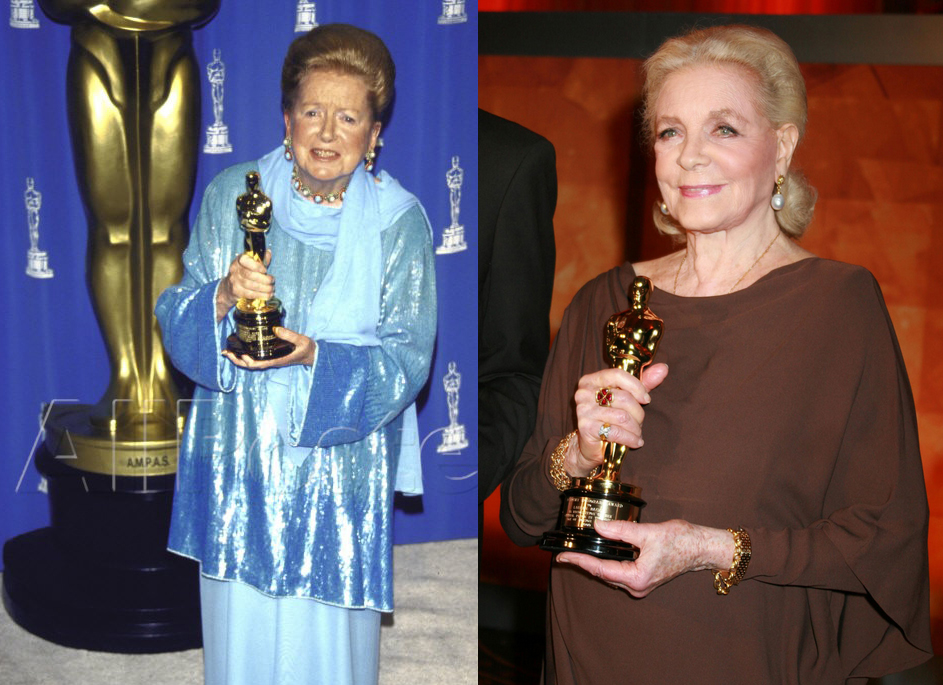 Deborah Kerr in 1993 and Lauren Bacall in 2009 and a great chasm between them
Deborah Kerr in 1993 and Lauren Bacall in 2009 and a great chasm between them
We know all too well that complaining about the Academy’s decision doesn’t get us anywhere, but since we found recently that they do have a listening ear, we’ve decided to do our part and help them correct this injustice. Let’s give voters the benefit of the doubt and assume that all they really needed all these years was a list of suggestions. So, here is ours: the top ten women who most deserve an honorary Oscar, under the following three criteria: they need to be alive, above the age of 55 and Oscar-less.
GIVE THESE WOMEN THE HONORARY!
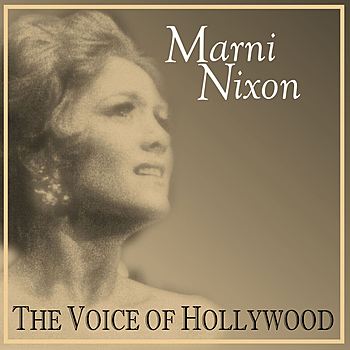 [tie] 10. Marni Nixon
[tie] 10. Marni Nixon
You may not know what Marni Nixon looks like, but I guarantee you know what she sounds like. If you've seen Gentlemen Prefer Blondes, The Secret Garden (1949), The King and I, An Affair to Remember, West Side Story, or My Fair Lady, you have heard Nixon's golden voice coming from the mouths of some of Hollywood's most legendary actresses. As if it isn't hard enough work to try to make your voice sound just like someone else's, in some instances Nixon had to do so in secret, the studios wanting to hide the dubbing from their big stars. Nixon's onscreen credits may number only in the single digits (her role as Sister Sophia in The Sound of Music being the most famous by far), but had she actually performed the roles she dubbed onscreen, she would have had at least two Oscar nominations by now. She's an indelible part of film history, and she never received any onscreen credit for her most famous work. If that isn't cause to give someone an Honorary Oscar, then I don't know what is.
-Daniel Bayer
10 more legends to honor after the jump!
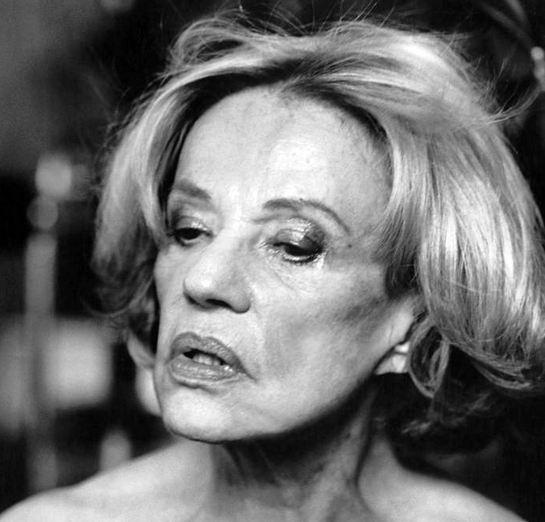 [tie] 10. Jeanne Moreau
[tie] 10. Jeanne Moreau
Sublimely melancholic in Louis Malle's one-two punch breakthrough (Elevator to the Gallows and The Lovers), irresistibly free-spirited and dangerously passionate in François Truffaut's masterpiece Jules et Jim, flamboyantly toxic in Jacques Demy's scintillating black diamond Bay of Angels, Jeanne Moreau stands as the female embodiment of one of the most influential movements in the history of cinema: the French new wave. Much like the groundbreaking works of the brash young directors who made her a star, her unconventional beauty defied preconceived standards, her brazen charisma and unpredictable stylings magnetized audiences around the world, while her singular choices (Antonioni, Welles, Losey, Buñuel, Fassbinder...) made her an eternal symbol of artistic freedom.
-Julien Kojfer
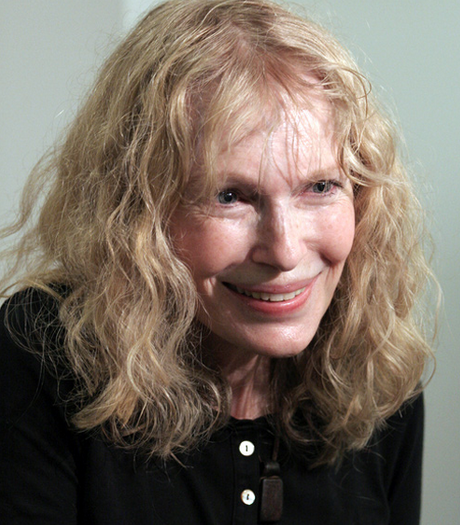 9. Mia Farrow
9. Mia Farrow
It takes more than fine acting to build the kind of enduring legacy that awards bodies were made to honor. The most enduring movie stars are those with that magic trifecta of inspired performances, uniquely storied celebrity, and the good luck to have appeared in (multiple) cinematic classics. On all three counts Mia Farrow is an inarguable winner. Even if she'd only had Rosemary's Baby she'd be worth honoring. Perhaps her decision to rarely venture outside Woody Allen's filmography for half her career dimmed the recollection of her extraordinary range within it (watch Alice, Broadway Danny Rose, and The Purple Rose of Cairo back to back and try to convince yourself it's the same actress!).
-Nathaniel R.
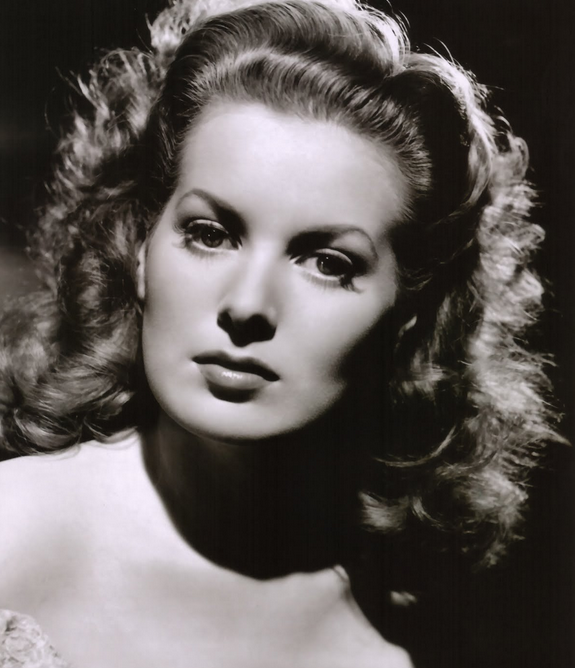 8. Maureen O’Hara
8. Maureen O’Hara
Irish actress and singer, Maureen O'Hara, may never have received a single Oscar nomination during her film career which began in the 1930s at the age of 19 in films like Hitchcock's Jamaica Inn and The Hunchback of Notre Dame and continued into the 1990s with Only the Lonely opposite John Candy. Nor was she a larger-than-life movie-star whose legend grew over the years like a Marilyn Monroe or a Bette Davis. But, she was a singular beauty effortlessly able to cross genres (from Musicals to Westerns to Swashbucklers) and her motherly devotion in a pair of Family Films (the holiday classic Miracle on 34th Street and as matriarch to Hayley Mills and...Hayley Mills in the original Parent Trap) is still beloved by multiple generations. But it is perhaps for her work with director John Ford (whom she worked with 5 times) that her real gifts as an actress were utilized. Playing tough yet warm Irish women in the Best Picture winner How Green Was My Valley and The Quiet Man with John Wayne (whom she also worked with 5 times), Ford brought out something in her that made her a legend in her own right--a fire within that burns as bright as the golden shine of an Honorary Oscar should to celebrate her remarkable career.
-Andrew Stewart
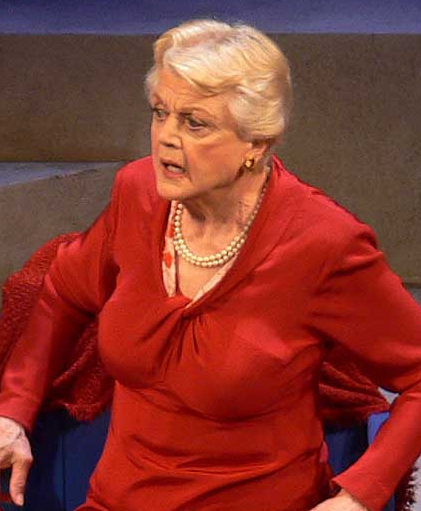 7. Angela Lansbury
7. Angela Lansbury
What makes one worthy of an Honorary Oscar? With the 18 (non winning) Emmy nominations and the five Tony Awards Angela Lansbury's place as a legend of the small screen and the stage would seem more assured than her place as a legend of the big-screen. But even in the face of Jessica Fletcher and Mrs. Lovett, Lansbury's place in the "greats" of movie history is assured. She's one of the few still active performers from the Golden Age of Hollywood and although she never reached the popularity level of her peers (damn those fair but unspectacular MGM films of the forties) her contribution to cinema is surely indelible. From her two early nominations by age 20, the overbearing mothers of the 50s, the singing witches of the 70s and the iconic voice-work of the 90s Angela's importance to cinema is evident. And that's not even counting her unfortunately less fêted (but still exemplary) work in films like The Dark at the Top of the Stairs and All Fall Down. Whether Honorary Oscars are created for excellent also-rans or illustrious non-winning careers Lansbury is deserving of the prize either way.
-Andrew Kendall
 6. Doris Day
6. Doris Day
In her heyday, Doris Day was the biggest female screen star, regularly topping box-office charts and named the biggest star of the year on several occasions - she still ranks at #6 in the all-time charts. Those dollars only ever led her to one Oscar nomination - for the first of her Rock Hudson collaborations, Pillow Talk - despite earlier, defter performances in comedy, drama and musicals (head to Love Me or Leave Me first), the latter being the arena she's always been most famous for. The HFPA gave her their lifetime achievement prize all the way back in 1989, but despite continued campaigning (not from Day herself, wrapped up in animal welfare causes and happy retirement), AMPAS has never bitten. Day's cinematic reputation is rather faded these days, but almost any of her films, regardless of their individual quality, still demonstrates the warm charisma and vibrant individualism that made her such a star in her day.
-David Upton
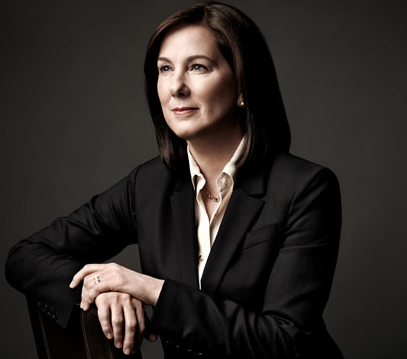 5. Kathleen Kennedy
5. Kathleen Kennedy
Raiders of the Lost Ark, The Sixth Sense, Back to the Future, Persepolis, Jurassic Park… I’m tempted to simply list producer Kathleen Kennedy’s credits here and call it a day, but then listing a dozen of the most popular films ever made would be scratching the surface. In terms of the most financially successful producers in history she is second only to Steven Spielberg, with whom she co-founded Amblin Entertainment. She has eight – count ‘em eight – Oscar nominations in the Best Picture category, stretching from ET to Lincoln, without a win. If that wasn’t enough she is currently slated to take over leadership of Lucasfilm from George himself. Do I need to go on? (I could) What are honorary Oscars for, if not to honor monumental careers like this one? The only reason not to is that she is still going so strong she would probably deserve a second honorary trophy a decade down the road.
- Michael C.
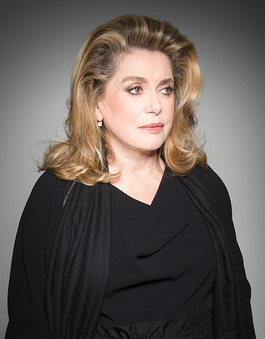 4. Catherine Deneuve
4. Catherine Deneuve
Catherine Deneuve is called the Doyenne of French Cinema for a reason. There is of course Leslie Caron, Jeanne Moreau, Fanny Ardent and Isabelles Huppert and Adjani. All exemplary. But Deneuve is Deneuve. Her work is her life is her work. She’s a solid gold bona fide star; an actress, a singer, an icon with a magnetic presence. She adds 100% more robust glamour and sultry skill to all her films — whether with Buñuel, Vadim, Demy or Truffaut or countless other notable filmmakers. Hey, not too many internationally-renowned actresses can say they sang with Joe Cocker, dated Clint Eastwood, speak four languages and design greetings cards. Pretty busy and eclectic, eh, particularly for someone with 100+ film appearances over 50+ years and her face on every key fashion magazine since, like, year dot. At 69 she looks as remarkable as ever. At 69 she performs as magnificently as ever. Look at Belle de Jour, Repulsion, Les Demoiselles de Rochefort, The Umbrellas of Cherbourg, Place Vendôme, Tristana and— after feeling the Denevue delirium — furrow your brow at her lack of an Oscar among her achievements. Then look at Un Flic, Hustle, The Hunger, The Last Metro, Ma saison préférée, Dancer in the Dark, 8 Women, Kings and Queen, Time Regained, Indochine and furrow your brow into infinity. Admittedly, she got a nomination for that last one. She won an Honorary Golden Palm from Cannes. At the very least she deserves an Honorary Oscar. Really, she deserves a couple.
-Craig Bloomfield
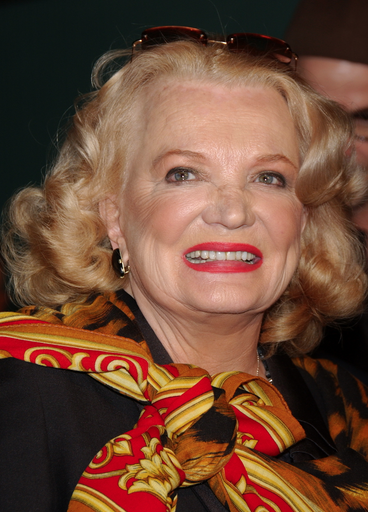 3. Gena Rowlands
3. Gena Rowlands
When Tilda Swinton was asked if she thought about Gena Rowlands while filming her genius performance in Julia, she gave, as usual, the best possible answer: "Yes I was, but then again, I'm always thinking about Gena Rowlands." It's bad enough when the Academy board passes over brilliant actresses every year for Honorary Oscar attention, but Rowlands is something else: the brilliant inventor of a whole kind of acting, blending Method intensity and preparation with freewheeling, extravagant, knife-edge improvisations that can be tragic, comic, or both. If she "only" had her co-creations with Cassavetes to her name she'd already deserve a statuette or two. When you add the frighteningly cold academics, the Depression-era chanteuses, the nurturers, the kooks, the villains, and the late-in-life romantics Rowlands has rendered so indelibly over the years, the bareness of her mantel is all the more staggering. We all live under her influence, and are much the better for it.
- Nick Davis
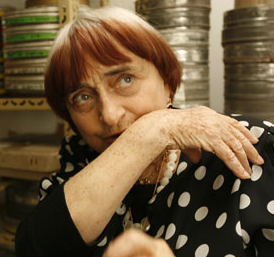 2. Agnes Varda
2. Agnes Varda
Being Jacques Demy's widow and muse should be enough to warrant Agnès Varda an Honorary Oscar but in a career that has spanned over five decades she has done much more than that. Part of the Rive Gauche film movement (the nouvelle vague's even more rebellious sibling) she created films that deal with mortality, time and a revised social realism. That she continues making movies well in her 80's should be proof of how committed she remains to her passion for the medium. Yet despite her achievements, she's remained strangely unknown outside a circle of devout cinephiles. When asked in an interview if she wanted to be famous she cleverly replied "No. I would like my films to be shown more".
-Jose Solis
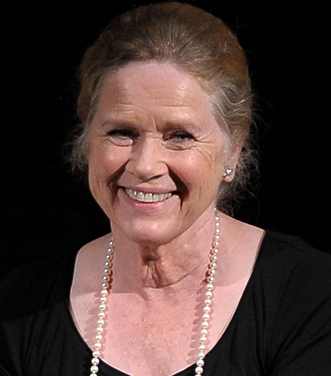 1. Liv Ullmann
1. Liv Ullmann
The triple-threat Ullmann is accomplished enough as a writer and director to merit attention, but it's as an actress that she's won most of her acclaim, and deservedly so. Merely limiting the conversation to her collaborations with Ingmar Bergman, for whom she was the most consistently great member of an impressively talented stock company, there are more than a few strong candidates for the title of best performance ever filmed: particularly the fiercely enigmatic Elisabeth of Persona, the insidiously childish Maria of Cries and Whispers, and the profoundly level-headed, complex depiction of an extraordinarily normal woman, Marianne, of Scenes from a Marriage. Broaden your perspective to include her great work for other world-class filmmakers, most notably Jan Troell, and you end up with a picture of a woman whose middle-level work is as exemplary as the highest career peaks of many truly wonderful actresses. Two Oscar nominations and no wins doesn't even begin to approach the level of acclaim she's earned.
-Tim Brayton

Amendment
Due a mistake on my (Amir's) part, our ballot didn't go out to one of our contributors, Glenn Dunks, in time. Had his late vote counted, Claire Denis would have ranked tenth, breaking the current Marni Nixon and Jeanne Moreau tie. I promise a Denis retrospective in the future to make up for this error!
Trivia
• The four women at the top of the list were head and shoulder above the rest in terms of point totals and within their ranks, Liv Ullmann was the clear favorite. There was never any doubt that Bergman’s muse would top the list, given that she appeared on all but three ballots, and topped four of them.
• We’ve already established that readers are more protective of Glenn Close's legacy than Team Experience is. Yet again, she missed our cut when she seemed like a natural choice... but not by much this time! Here are our 13th to 20th suggestions: Glenn Close (actress), Juliet Taylor (casting director), Patricia Norris (costume designer), Emmanuelle Riva (actress), Eleanor Parker (actress), Debbie Reynolds (actress), Elaine May (writer/director/actress).
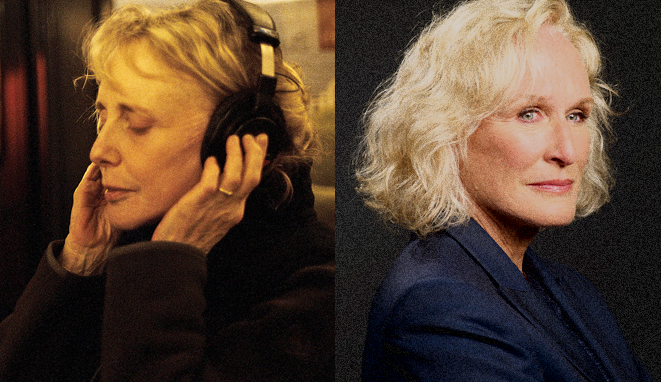 More Women We Love: Claire Denis and Glenn Close
More Women We Love: Claire Denis and Glenn Close
• There are six Francophone ladies in the top 20, but that’s not where it ends. Danielle Darrieux, Chantal Akerman, Edith Scob and Isabelle Adjani all had their fans. Other non-English speakers we’d like Oscar to embrace are: Machiko Kyo, Lina Wertmueller, Fernanda Montenegro, Setsuko Hara, Gina Lollobrigida, Agnieszka Holland and Carmen Maura.
• Costumers and writer/directors aside, one of the things this poll really brought to light was the lack of lengthy careers for female talent behind the camera. This isn’t so much the fault of women as it is of an industry that doesn’t nurture their talents in these areas. Something is clearly broken when, despite our very best efforts to be open-minded, we could barely come up with anyone who met our criteria in almost all below the line aspect of cinema. Here’s hoping this situation changes in the next few decades.